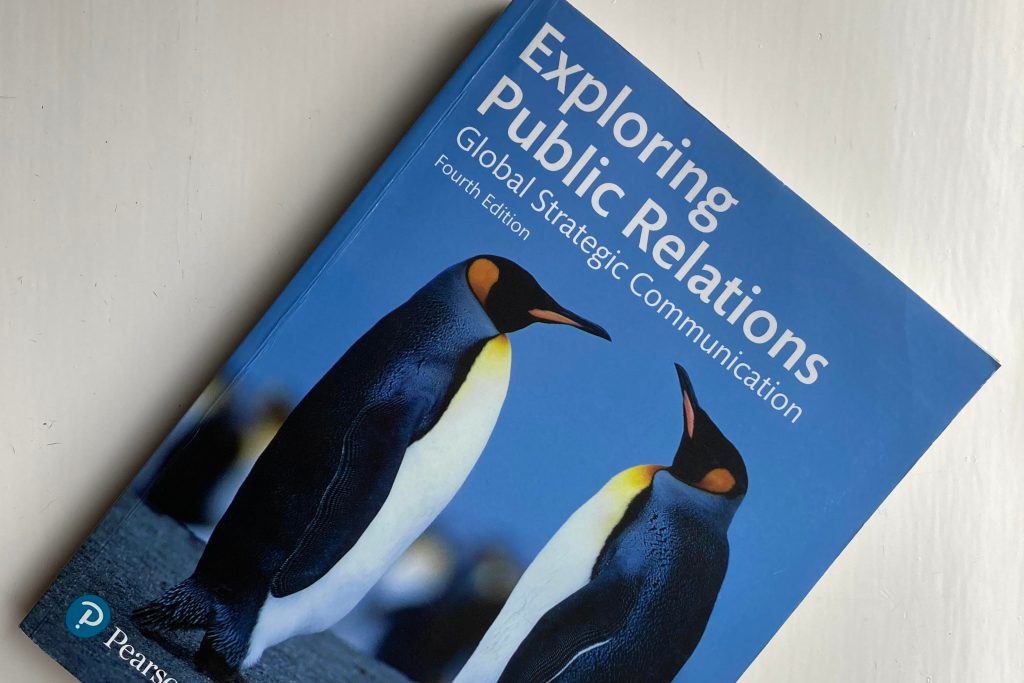How to study public relations (pandemic edition)

About the author
Richard Bailey Hon FCIPR is editor of PR Academy's PR Place Insights. He teaches and assesses undergraduate, postgraduate and professional students.

It’s a bad time to be a student according to the news reports emphasising the problems faced by locked-down freshers. But, paradoxically, this is a good time to study. Some will have more time on their hands; many will be keen to retrain and upskill; all will be more comfortable with the idea of learning online.
Despite the worst predictions surrounding the pandemic and the economic downturn, large numbers of new students have enrolled at university and many candidates are studying towards professional qualifications.
Online teaching is now well-established and familiar to many, and it’s proving more scalable than traditional classroom teaching – offering the potential to further expand education without an ever-increasing expense. Again, the media narrative involves questioning the value for money when university teaching is online – but in my experience students are already more familiar than their lecturers in this mode of teaching and learning. Phone and laptop screens have long been an important part of their lives, and no one misses the dash to a 9am lecture, preceded by worries about what to wear.
Each course and qualification will follow its own curriculum, have its own assessments and reading lists. So this article can only talk in very general terms about the questions you should be asking and some resources to help you progress. Let’s take four categories of students in turn.
Foundation/undergraduate
This is your first time studying public relations, since it’s not offered as an A level subject. So you will have to explore questions around definitions and also explore the relationship of public relations to disciplines and practice areas such as journalism and marketing/advertising.
It’s a cause of some frustration for many students that public relations eludes one clear definition. Some conclude from the very many attempts that ‘it’s impossible to define public relations.’ It’s an understandable view, but this is the wrong conclusion from the evidence which instead suggests it’s all too easy to attempt a definition.
But this elusiveness could be a strength rather than a weakness. If a fixed definition had been reached a century ago, would it have been capable of adapting to the rise of the consumer society in the second half of the twentieth century and the changing digital landscape of the past two decades?
So I’d encourage you to consider the trends affecting public relations. Right now, we’re asking if many PR and comms roles will be cut as a result of the pandemic, or whether the role will be seen as even more essential given the challenges of navigating risk and uncertainty and of communicating with remote workforces. The answer to this will come clear in the coming years – while some of you are still studying and considering your next moves.
Here are some resources you may find helpful.
- We’ve published a free guide covering the main academic perspectives on public relations.
- I’ve written this simple tale in an attempt to illustrate the shifting fortunes of journalism, public relations and marketing
Understanding public relations and gaining good grades for your assignments is your starting point, but it shouldn’t be your only end point. While attending classes and reading textbooks is important, you should also be taking every opportunity to improve your skills and develop your network.
Here are some things you should consider:
- Creating a professional profile on LinkedIn
- Using Twitter to follow practitioners and industry leaders
- Creating your own professionally-focused content and joining the conversation (we will be highlighting good examples of #prstudent content each week of the academic year)
- Taking up opportunities to join professional events (often available to students for free)
Postgraduate
You too may be a public relations beginner, but you are not new to studying, so you should be able to progress faster. So in addition to everything covered above, you may be expected to go beyond a straightforward description of public relations into more challenging discussions of its effects on society, noting critical perspectives as well as the once-dominant managerial perspectives. You may also be required to develop a more substantial research-based dissertation.
The shorter duration of taught postgraduate courses means it’s even more pressing for you to make contacts in the industry. You should seize opportunities to engage on social media, through professional bodies, by attending online events, and taking up work experience opportunities.
Skills
University may not be the best option if you’re simply looking to gain new skills (the emphasis in higher education is on understanding a subject). Short training courses might be a better option for those looking to develop competence in writing, digital and SEO, pitching and presentations, listening, measurement and evaluation. The emphasis here is on up-to-date practice, and little if any reference is made to academic insights.
Professional qualifications
There’s a skills element in professional qualifications, but the emphasis is on professionalism. A professional is expected to be a master of their discipline, but also to know how to manage upwards: to make the case to senior management, to be responsible for strategy as well as tactics, to understand how to measure and report results. They are also expected to understand risk and assess the ethical implications of communication choices. Professionals have to demonstrate competence, but they should go beyond this and show their ability to reflect on and justify the choices they make. They should be masters in managing uncertainty! Never has there been greater need for highly competent public relations professionals.
You can check out some options for professional qualifications here.